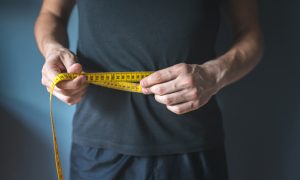In the realm of nutrition, understanding the specific needs of women is paramount for ensuring overall health and well-being. While a balanced diet is crucial for everyone, women have unique requirements when it comes to vitamins and minerals. In this article, we delve into the essential nutrients that women need to thrive.

- Calcium: Women, especially as they age, require ample amounts of calcium to maintain bone health and prevent osteoporosis. Dairy products, leafy greens, and fortified foods are excellent sources of this mineral.
- Iron: Iron deficiency is common among women due to menstrual blood loss. Adequate iron intake is necessary to prevent anemia and maintain energy levels. Good sources of iron include red meat, poultry, fish, beans, and fortified cereals.
- Folate (Folic Acid): Folate is crucial for women of childbearing age as it reduces the risk of neural tube defects in newborns. Leafy greens, citrus fruits, beans, and fortified grains are rich in folate.
- Vitamin D: Essential for calcium absorption and bone health, vitamin D deficiency is widespread among women. Sun exposure, fortified dairy and plant-based milk, fatty fish, and supplements can help meet vitamin D needs.
- Omega-3 Fatty Acids: These healthy fats play a vital role in heart health, brain function, and reducing inflammation. Fatty fish like salmon, walnuts, flaxseeds, and chia seeds are excellent sources.
- Magnesium: Important for muscle and nerve function, magnesium is also involved in over 300 biochemical reactions in the body. Leafy greens, nuts, seeds, whole grains, and legumes are rich sources.
- Vitamin B12: Vital for nerve function and the formation of red blood cells, vitamin B12 is primarily found in animal products. Vegetarian and vegan women may need to supplement or consume fortified foods to meet their needs.
- Vitamin K: This vitamin is essential for blood clotting and bone health. Leafy greens, broccoli, Brussels sprouts, and vegetable oils are good sources of vitamin K.
- Vitamin A: Important for vision, immune function, and skin health, vitamin A can be found in orange and yellow fruits and vegetables, leafy greens, and liver.
- Zinc: Crucial for immune function, wound healing, and cell division, zinc can be found in meat, shellfish, legumes, seeds, and nuts.
It’s important for women to prioritize a balanced diet rich in these essential vitamins and minerals. However, individual needs may vary based on factors such as age, pregnancy, breastfeeding, and underlying health conditions. Consulting with a healthcare provider or registered dietitian can provide personalized recommendations to ensure optimal nutrient intake for women’s health and well-being.



